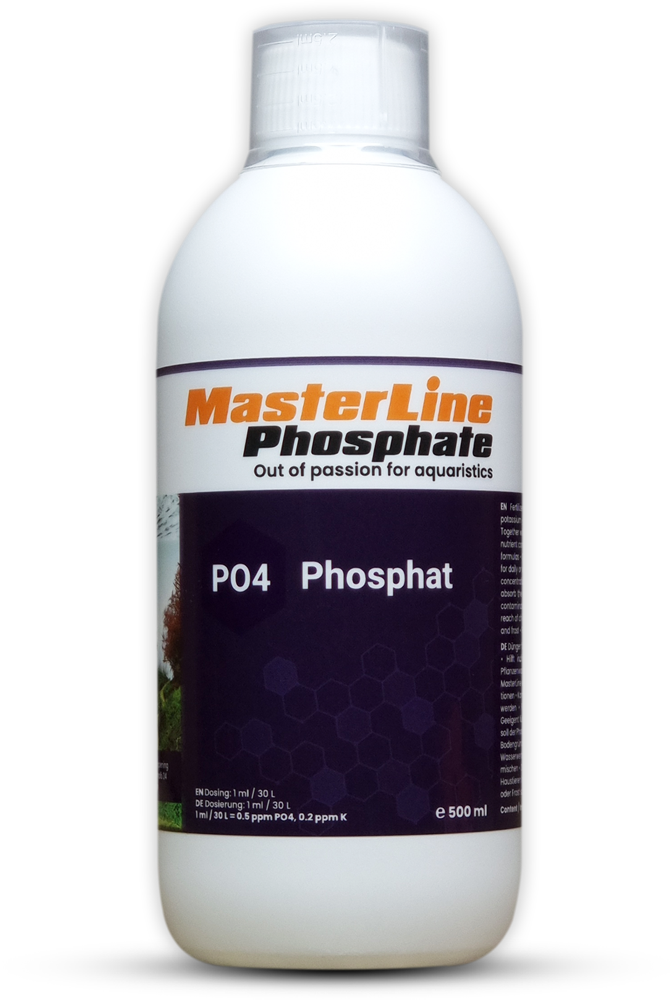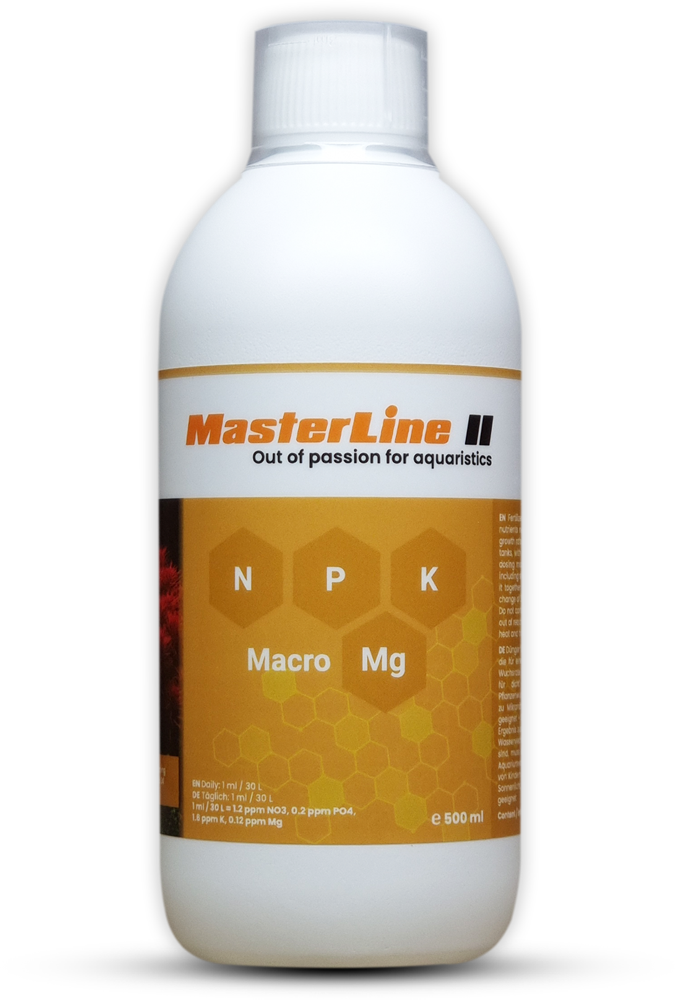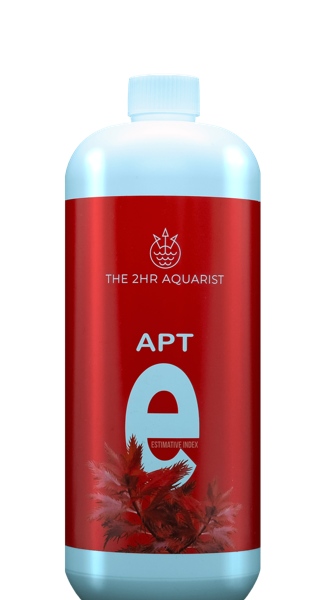MASTERLINE PHOSPHATE 1000ml – Phosphate and Potassium Supplement for Aquarium Plants
MasterLine Phosphate 1000ml is a high-performance liquid fertilizer designed to provide phosphate (PO₄³⁻) and potassium (K), two key macronutrients essential for the fast and healthy development of aquatic plants. It enables precise control of nutrient levels, indirectly helping to prevent algae by maintaining balance.
Phosphorus is crucial for cellular energy production and root development, while potassium supports key physiological functions. The formula contains 0.49% phosphorus and 0.62% potassium. Each 1 ml dose per 30 liters adds 0.5 ppm PO₄ and 0.2 ppm K, making it ideal for planted tanks with inert or fast-absorbing substrates.
MasterLine Phosphate can be used independently or alongside other MasterLine products as part of a complete fertilization routine. Safe for all aquarium life, including shrimp and sensitive invertebrates. In tanks with active substrates, phosphates are rapidly absorbed, often leaving 0.1–0.2 ppm in the water column—regular testing is recommended.
Main features:
-
Contains phosphate and potassium (0.49% P, 0.62% K)
-
Enhances plant root development and energy production
-
Helps prevent algae by maintaining nutrient balance
-
Safe for shrimp, fish, and invertebrates
-
Ideal for inert substrates and high-uptake plant tanks
-
Recommended dose: 1 ml per 30 liters = 0.5 ppm PO₄
Why choose MasterLine Phosphate 1000ml:
MasterLine Phosphate 1000ml is the reliable choice for aquarists who want precise, effective phosphate and potassium supplementation to support lush plant growth and prevent nutrient-related imbalances.



 English
English  Italiano
Italiano 






